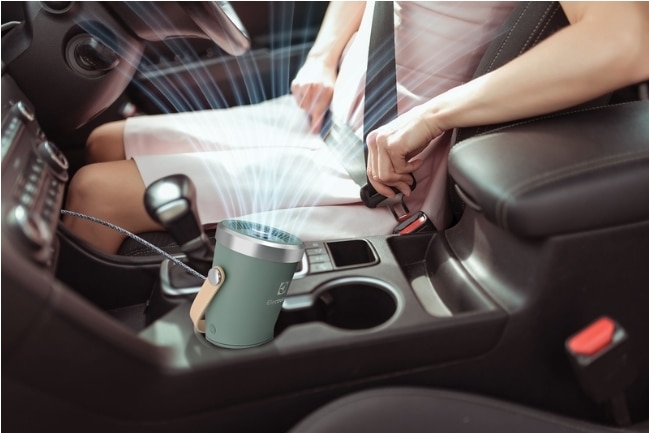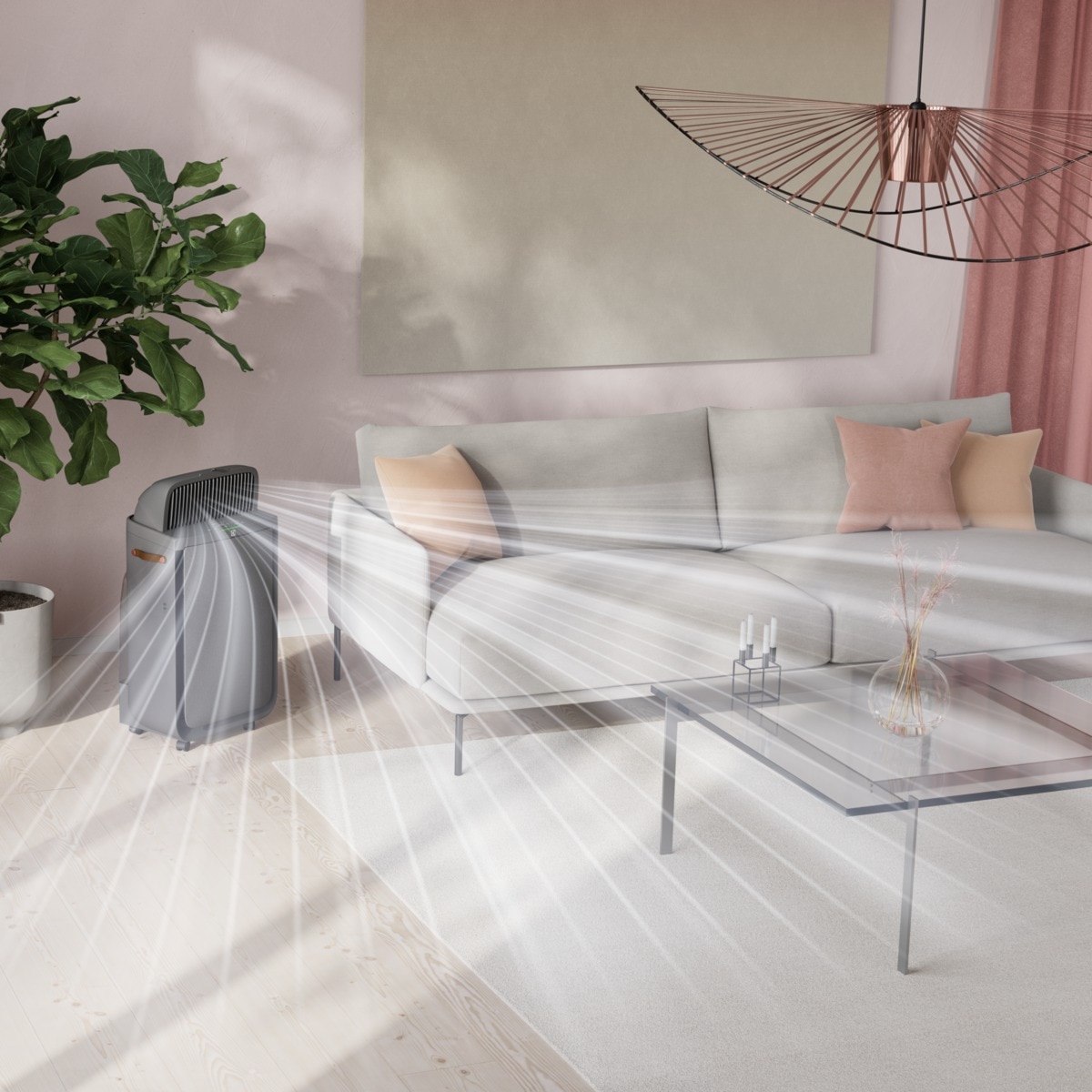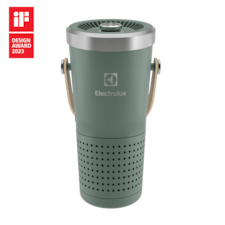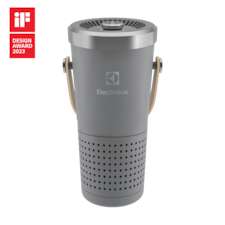Thus, air purifier has become one of the most popular household appliances these days. It helps to keep clean air in your home, filters dust and dangerous pollutants, which is beneficial for those who suffer from asthma, allergy, and other respiratory issues.
In this article, we will share with you the benefits of having an air purifier and how to choose an air purifier for your home.
1. What is an air purifier?
An air purifier is an indoor device that is used to purify the air, remove pollution, and improve air quality. It helps to filter dust, viruses, germs and bacteria, including unpleasant odors in the house, toxic gases and particulate pollution. The purpose of this device is to limit the spread of harmful residues or allergens and to prevent asthma or allergy problems related to air quality in people at risk (children, the elderly, etc.).
How does an air purifier work? Well, an air purifier is equipped with different filters, and each filter plays a different role in the process of air purification. An air purifier has to go through several stages to clean the air.
Firstly, the purifier draws in the air in the room to capture the particles. The air then passes through different filters that catch the various types of pollutants present in the air. After the process of removing impurities and pollutants, the device will push back the clean air into your living spaces.
The benefits of using an air purifier
Investing in an air purifier offers numerous benefits for a healthier lifestyle. Advanced HEPA filters and real-time air quality monitoring, such as those in Electrolux air purifiers, effectively reduce exposure to harmful pollutants like PM2.5 and allergens, while also combating seasonal haze and urban pollution.
These devices create a healthier living environment, enhance sleep quality, and improve overall well-being. Additionally, air purifiers eliminate unpleasant odors and volatile organic compounds (VOCs), ensuring fresher, cleaner air in your living spaces.
2. Key features to consider
Air purifier filter types
There are different technologies that air purifiers work on to effectively clean the air. Choose the product with suitable filters you want:
- HEPA filters: Essential for capturing PM2.5 and allergens. True HEPA filters are more effective than HEPA-type filters.
- Carbon filters: Ideal for removing odors and volatile organic compounds (VOCs).
- Pre-filters: Capture large particles like dust and pet hair, prolonging the life of other filters.
- UV and ionizer options: Additional technologies to neutralize bacteria and viruses.
Size of your room
When choosing an air purifier for different room sizes, it’s essential to check the purifier’s coverage area, often listed as square footage (sq. ft). To calculate your room size for an air purifier, simply multiply the room's length by its width. For instance, a room that is 10 feet by 12 feet equals 120 sq. ft.
Ensure the air purifier you choose is rated for at least the size of your room. For optimal performance, we recommend buying an air purifier that can operate in a space that is 20-40% larger than your room.
Clean air delivery rate (CADR)
What is CADR rating and why it matters when choosing an air purifier? CADR stands for Clean Air Delivery Rate that tells a consumer how efficient air purifiers are at removing a certain contaminant from the indoors. The three pollutants that are measured are pollen, smoke and dust.
The CADR rating reflects the volume of air in CFM (cubic feet per minute) that is cleaned of particles of certain sizes.
Typically, the larger the room, the larger the CADR rate you want. Manufacturers usually list the recommended CADR and room size on the guidelines, so read carefully when you buy a purifier.
This is the suggested CADR rate for different room sizes:
| Room area (m²) | Minimum CADR (cubic feet per minute) |
| 26 | 200 |
| 40 | 300 |
| 53 | 400 |
| 66 | 472 |
| 88 | 688 |
Noise level

Not only does air purifying performance matter when considering an air purifier, but its noise level also plays an important role. The machine should always be running so ideally, they should also be quiet.
If you buy it for your bedroom or baby’s room, choose the air purifier that makes less noise so that you can sleep beautifully. For the living room, you can choose the one with multiple settings which you can change as you want.
In general, an air purifier with a noise rating of 50 dB is appropriate for most living spaces.
Smart features
Smart features in air purifiers can greatly enhance convenience and user experience. Look for models with app connectivity, which allow you to monitor and control settings remotely. Air quality sensors are useful for automatically adjusting filtration levels based on current air conditions, ensuring optimal performance.
3. Choosing the right air purifier for your needs

Air purifier for allergy sufferers
When selecting an air purifier for allergy sufferers, it’s important to prioritize models equipped with advanced HEPA filters, which are specifically designed to capture common allergens such as pollen, dust mites, and mold spores.
Additionally, consider models with multi-layer filtration systems that not only target allergens but also help remove irritants like smoke and strong odors, providing a more comprehensive solution for improved air quality.
Electrolux air purifiers are designed with advanced filtration technology, including HEPA filters that effectively trap allergens such as pollen, dust mites, and pet dander, making them an excellent choice for allergy sufferers.
Air purifier for pet owners
For pet owners, selecting an air purifier with pre-filters is essential as they capture pet hair and larger debris, helping to prolong the life of the main filters. Carbon filters are equally important for neutralizing pet odors and volatile organic compounds (VOCs).
To maximize efficiency, opt for compact purifier designs that can be strategically placed near pet areas, ensuring the air is consistently clean and free from allergens, pet dander, and odors.
Air purifier for smokers
The question is: “Can air purifier remove cigarettes smoke?”
Yes, Air purifiers can effectively remove cigarette smoke, but their success depends on the type of filter used. HEPA filters capture fine particles such as tobacco smoke particles, while activated carbon filters are particularly effective in neutralizing the odors and harmful gases associated with smoking.
For optimal results, choose a purifier that combines both HEPA and carbon filters, as they work together to improve air quality by removing both smoke particles and lingering smells.
4. Additional considerations
Maintenance costs
When considering maintenance costs for air purifiers, it's important to understand the filter replacement frequency. HEPA filters typically need replacement every 6-12 months, while carbon filters may require more frequent changes due to their role in absorbing odors and gases.
Ensure the availability and cost of replacement filters in your area, as they can vary. For instance, Electrolux offers accessible and cost-effective filters in Thailand. Additionally, look for models with washable pre-filters, which can help reduce ongoing maintenance costs.
Brand reputation
When choosing an air purifier, consider the brand's reputation, as it reflects product quality and customer satisfaction. Well-established brands often have a track record of reliability, strong customer service, and positive feedback. Reading air purifier reviews is also crucial, as real user experiences provide insights into performance, durability, and ease of use. Look for reviews that highlight the effectiveness of the purifier in various environments, maintenance requirements, and overall value for money to ensure you make an informed choice.
4. Air purifier price
How much does an air purifier cost? Getting an air purifier can be extremely important to health, especially for those who have allergies or asthma. However, there are many things to consider such as type of filter, room size, CADR and especially, price. Electrolux air purifiers have a wide range of price levels and capacities. You can select a suitable air purifier ranging from B5,990 to over B22,000.
5. FAQs
-
Does an air purifier consume a lot of electricity?
Most models are energy-efficient and cost little to operate daily.
-
Is an air purifier necessary in the bedroom?
Yes, as it improves air quality and promotes better sleep.
-
Can you open windows while using an air purifier?
It’s best to keep windows closed for maximum efficiency.
-
Can air purifier filters be washed?
Pre-filters can often be washed, but HEPA and carbon filters typically need replacement.
-
How often should air filters be cleaned?
Pre-filters should be cleaned monthly. Other filters depend on usage but are usually replaced every 6-12 months.
-
When should air purifier filters be replaced?
Follow manufacturer guidelines, typically every 6-12 months.
6. Why you should buy an Electrolux air purifier?
Air purifiers are an essential investment for a healthier lifestyle in Thailand, helping you combat pollution and improve indoor air quality. Electrolux air purifiers stand out with their combination of cutting-edge technology, sleek design, and user-friendly features. From advanced HEPA filters that efficiently capture PM2.5 particles to real-time air quality monitoring and energy-saving modes, Electrolux offers unmatched value and performance.
Additionally, Electrolux is known for its commitment to customer satisfaction, with accessible replacement filters, comprehensive warranties, and exceptional after-sales service in Thailand. Whether you need a purifier for combating seasonal haze, reducing allergens, or eliminating odors, Electrolux provides reliable solutions tailored to your needs.
Choose Electrolux air purifiers for cleaner air, a healthier home, and peace of mind.



